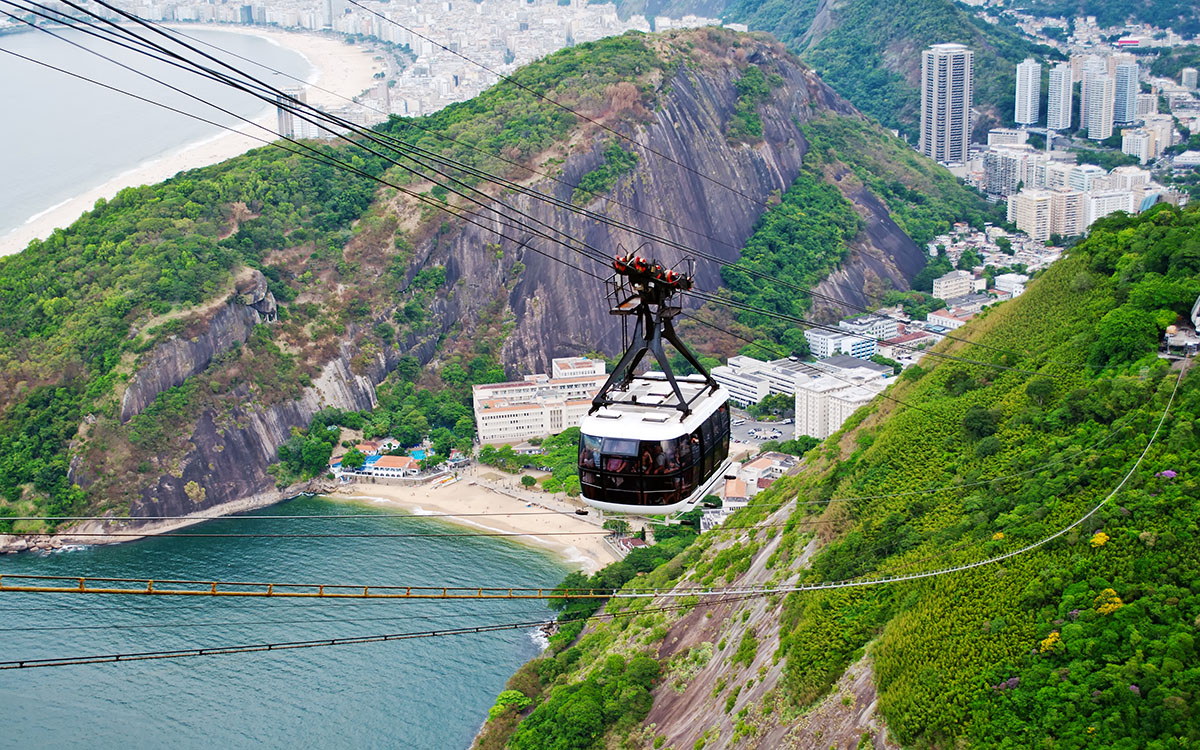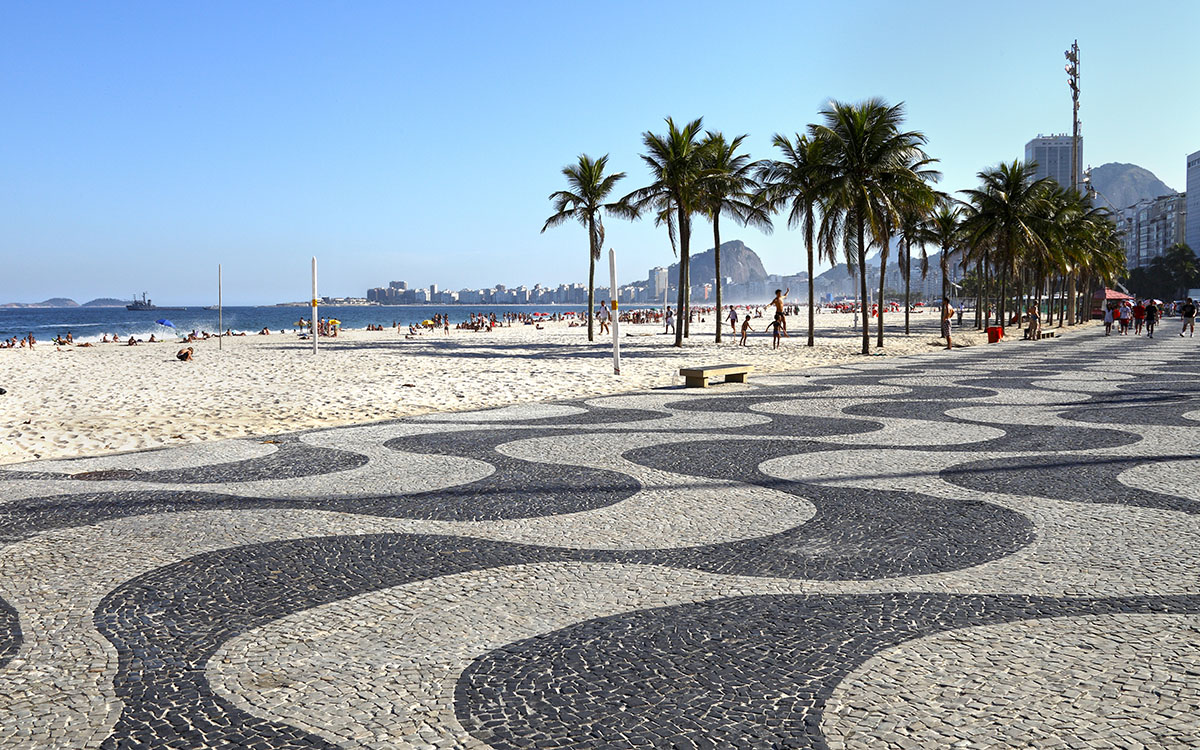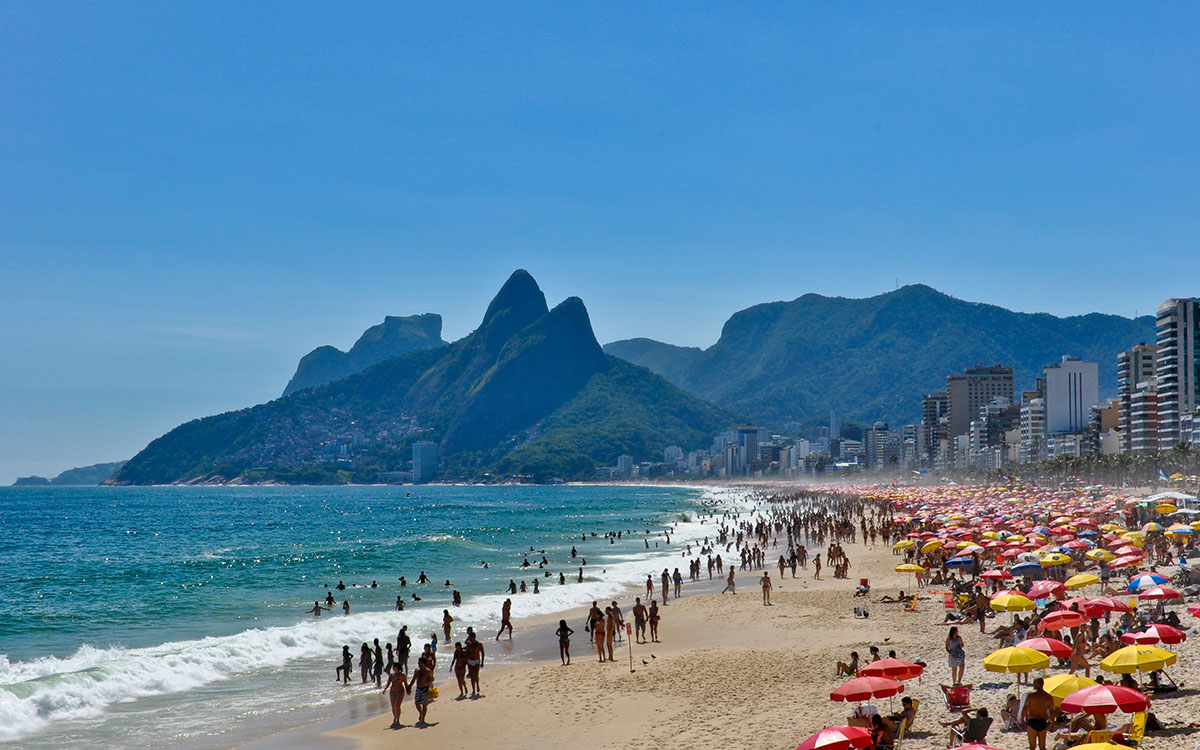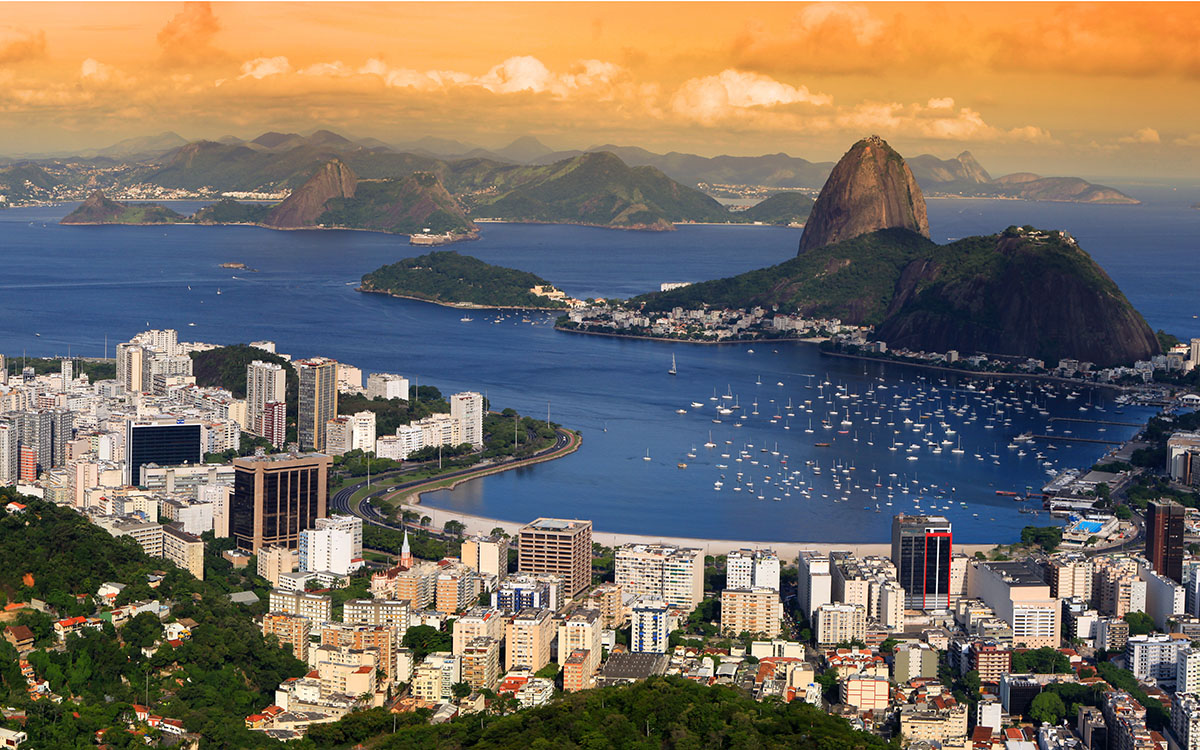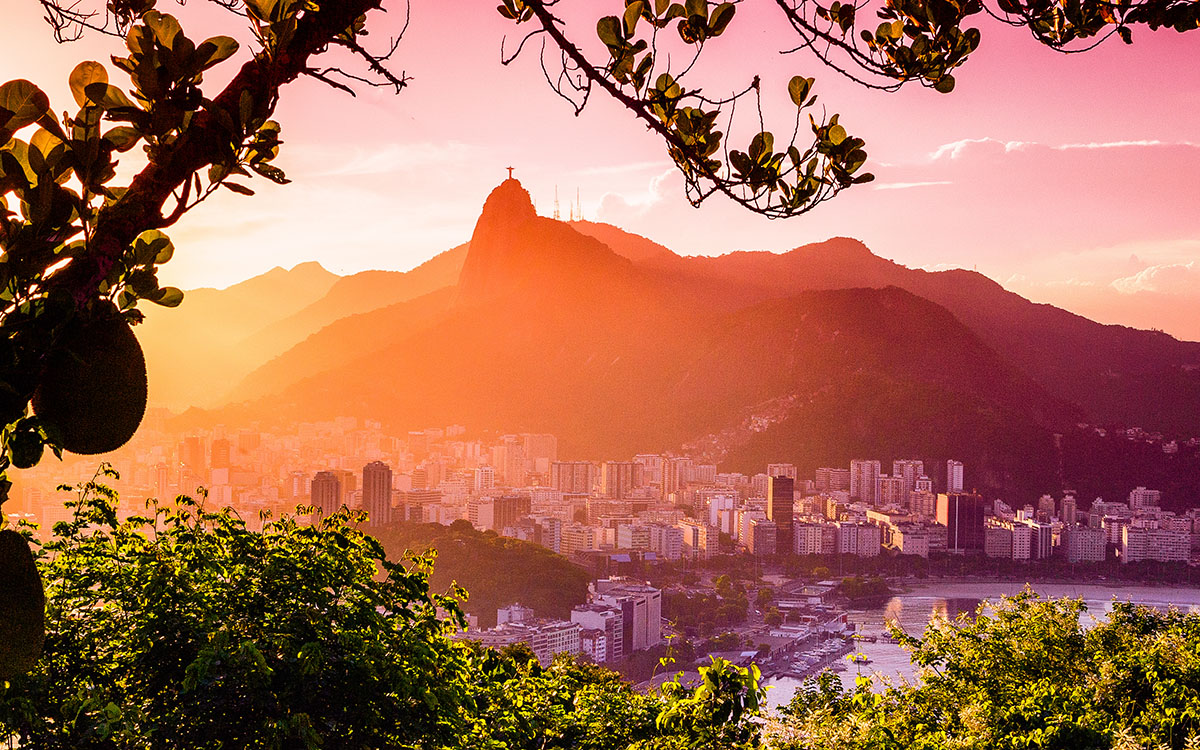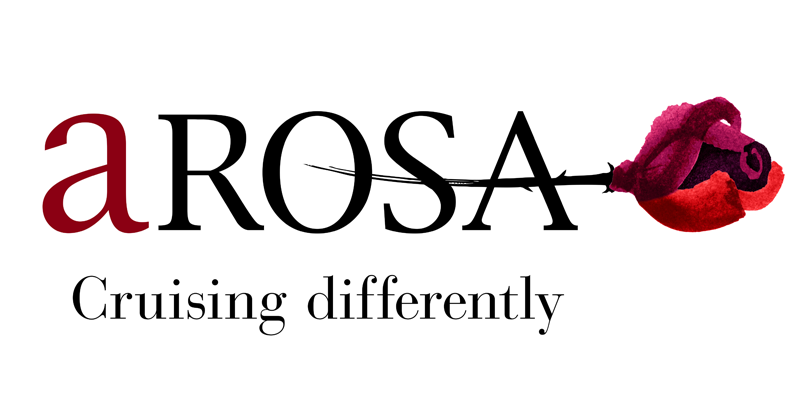Home to Carnival, samba and Copacabana,
it's not surprising that the nightlife in Rio de Janeiro is one of
a kind, and Cariocas (Rio's residents) don't need much excuse to
party. Whether visitors are looking for a relaxing bar or lounge to
sip on a couple of chopps (draught beer), or in the mood for a
night of dancing, Rio's got it covered.
A popular way to warm things up is to start
at one of the scores of beach bars with a coconut juice or cocktail
in the cooler early evening. Head off to one of Rio de Janeiro's
trendy beach communities, such as Copacabana, Ipanema or Leblon and
explore the bars and clubs. But be warned, some of these places may
not grant entry to people wearing shorts, t-shirts or
flip-flops.
The clubs generally start to really heat up
around midnight, so most visitors enjoy a late dinner at one of
Rio's many trendy eateries or botequins (traditional Brazilian bar)
before checking out the club scene at the Rio Scenarium, Comuna da
Semente or Carioca da Gema. Lapa is a popular area for revellers,
as is Gamba. Rio also has a vibrant gay party scene, with many bars
and clubs in Copacabana and Ipanema.
Clubbing in Rio can be expensive, but a
cheaper night out is possible by sticking to local beverages. Many
establishments will charge patrons for drinks and entry only when
they leave, so it's wise to keep track of what one spends. Most
clubs have a dress code and some will only allow men when
accompanied by women, while most will require an ID or passport to
enter.
An alternative to clubs and bars in Rio are
its famous street parties. Lapa hosts a street party every Friday
and Saturday night near the aqueduct on Avenida Mem de Sá, while
Sundays, Mondays and Thursdays are the best nights to head to
Gávea, where you'll find music, cheap beer and many university
students on the street in front of the bar Hipódromo.
Live music and dancing is an integral part
of Rio culture, boasting a veritable treasure trove of samba, bossa
nova, rock, MBP (Brazilian pop), blues and jazz. There's seemingly
always a gig going down on any given night in Rio. A popular option
is watching samba school rehearsal parties, where local drummers
and dancers showcase their skills in warehouses for thousands of
people. It's a great way to get a taste of the Carnival atmosphere
at other times of the year.
Shopping in Rio de Janeiro can be a
rewarding experience for tourists on the hunt for bargains, whether
they seek cheap souvenirs or designer goods. While Rio is not
usually considered a major shopping destination, there are a number
of shopping centres, boutiques, street stalls and markets offering
a wide selection of mementos. The main shopping destinations are
concentrated in areas such as Rio Sul in the city centre, but there
are also several shopping districts near the beaches, including
Avenida Nossa Senhora and Rua Barata Ribeiro in Copacabana, Avenida
Ataulfo de Paiva in Leblon, and Rua Visconde de Pirajá in
Ipanema.
Religious antiques, soapstone carvings,
leather goods and gemstone jewellery are Rio's most popular
souvenirs, vended by various establishments throughout the city.
You can also find local gemstones carved into anything from a tiny
Christ the Redeemer to shapes of toucans, jaguars and other wild
figures that make for great mementos.
Good-quality beachwear and Brazilian soccer
jerseys are popular, though you'll need to choose between cheap
imitations at market stalls and more expensive official
merchandise, typically sold at stadium shops. Rio is also the
birthplace of Havaianas (flip-flops), which you'll find here in any
number of styles and colours. A classic souvenir that captures the
essence of Rio is music, particularly Brazil's distinctive local
music. For a good selection of jazz music and books, head to the
artsy Livraria da Travessa.
The gift shop at the Museu do Índio has a
selection of pots, woven baskets and wooden artefacts made by
indigenous tribes. Another unique keepsake is a bottle of cachaça,
or sugar cane brandy, which is the most popular spirit in Brazil
and brewed at Petisco da Vila. Try a sample after watching the
production process at the brewery.
Good-quality local arts and crafts can be
found at outdoor weekend markets, the best of which include the
Hippie Fair, the Babilônia Hype Fair and the enormous Feira
Nordestina São Cristóvão, which has more than 700 stalls. For
flowers and food, including fruit, vegetables and cheeses, Praca
General Osorio in Ipanema and Rua Domingos Ferreira in Copacabana
are worth a visit.
Most items are reasonably priced, as long
as you stay away from the obvious tourist traps around the major
hotels. Bartering is acceptable, and visitors can often earn up to
a 10 percent discount in shops if paying cash, though most shops
and even some markets will accept major credit cards. Shops tend to
stay open Monday to Friday from 9am to 7pm, and shopping centres
stay open daily from 10am to 10pm. Sales tax is 18 percent, and
there is no tax refund scheme for departing tourists in Brazil.
.jpg)





